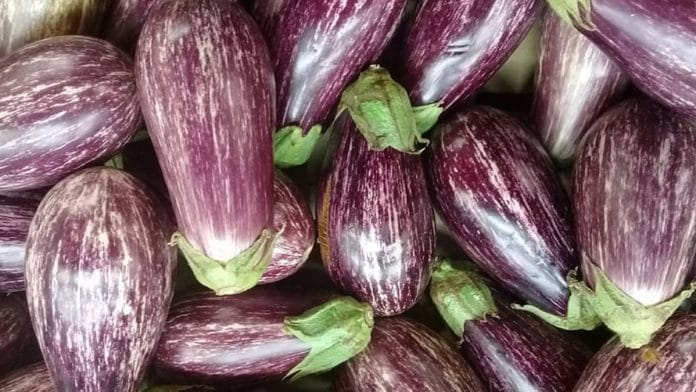New Delhi: The United States Department of Agriculture (USDA) has termed the current policy environment in India as one of the major reasons behind uncertainty in the country’s agricultural biotechnology research and development (R&D).
A report, released by the USDA’s Global Agricultural Information Network in December 2021, claimed after the Narendra Modi government assumed power in 2014, the Indian biotech regulatory system, under the Genetic Engineering Appraisal Committee (GEAC), has slowed considerably and lagged.
“The ruling National Democratic Alliance (NDA) government remains indecisive on GE (genetically engineered) product approvals. The existing policy environment creates significant uncertainty and discourages investment in agricultural biotechnology research and development (R&D) in India,” the report stated.
This delay in the Indian crop biotech scenario, the report claimed, occurred especially after the 2017 deferral decision on GE mustard due to political pressure from various anti-biotech interest groups. “Various anti-biotech stakeholders, including Right-wing anti-biotech groups, challenged the decision of environmental release of the crop,” the USDA stated.
The report also pointed out that India is still undecided on GE or GMO (genetically modified organism) crops, despite the GEAC giving environmental clearance for GM brinjal and mustard.
It further said that a domestically developed GE mustard variety using genes developed by Delhi University has torturously progressed through India’s regulatory approval system.
ThePrint approached the Ministry of Environment, Forest and Climate Change, under whose ambit the GEAC works, for a comment on the USDA’s claims, through email and calls. This report will be updated once it responds.
Also Read: Farming GM crops, employment fund — what govt panel has suggested to create 20 cr jobs in 5 yrs
State of GM crops in India
The report claimed most agricultural researchers and Indian scientists believe that biotechnology is an important tool for addressing India’s future food security, sustainability, and climate change concerns.
It stated that while BT (Bacillus Thuringiensis) cotton is the only biotech crop approved for commercial cultivation, soy and canola oils derived from GE crops with some food ingredients from microbial biotechnology are approved for import.
Remarking on the state of genetically improved crops in India, the report said: “Companies involved in developing GE crops are suspending research and development efforts and are exploring commercialisation in other countries such as BT eggplant in Bangladesh and Philippines.”
It also claimed most of the crop developers have withdrawn or placed on hold the pursuit of approvals because of the policy stalemate.
In August last year, the central government had, to provide relief to the poultry sector, allowed import of 12 lakh tonnes of crushed and de-oiled soybean cakes (soymeal) derived from GM soybean. The report said this opened up the possibility of providing market access for distillers’ dried grains with solubles obtained from GM corn. It also noted that despite allowing import, the commerce ministry is yet to clarify that ‘crushed soybean de-oiled cakes’ is in fact an older industry term and is equivalent to soybean meal.
India hasn’t approved any new GM crops since 2009 after the Supreme Court declared a 10-year moratorium on genetically modified crops, even though the moratorium has ended, stated the report.
Potential of biotech R&D
Explaining the potential of biotech R&D in Indian agriculture, the report said several Indian seed companies and public sector research institutions are developing GE crops of more than 85 plant species.
These crops have various qualities such as pest resistance, herbicide tolerance, climatic stress tolerance, nutritional enhancement amongst others.
“While crops developed by the public sector include banana, cabbage, cassava, cauliflower, chickpeas, cotton, eggplant, rapeseed/mustard, papaya, peanut, pigeon pea, potato, rice, sorghum, sugarcane, tomatoes, watermelon, and wheat, private seed companies are focusing on crops like cabbage, cauliflower, chickpea, corn, cotton, mustard/rapeseed, okra, pigeon pea, rice, and tomato,” said the report.
It further said that should the Indian government move in the near-term to approve GE crops via science-based regulatory assessment, then besides BT eggplant and GE mustard, there are three other crop events (change in type of crop) ready, including a stacked herbicide-tolerant (HTBT) cotton event, HT corn, and another BT eggplant event.
‘Illegal cultivation of unapproved GE crops continues unabated’
It also noted that the BT variety of GM cotton got commercial cultivation approval in 2002 after farmers began cultivating it illegally at the start of 2000. This saw BT cotton making up 95 per cent of the current area under cotton, as a response to the low yield of traditional varieties.
“As illegal cultivation of unapproved GE crops continues unabated, many other crops such as HT-GE soybeans are being cultivated in Gujarat and Madhya Pradesh, while BT eggplants from Bangladesh have found their way into fields of West Bengal and Odisha and are slowly spreading to other states,” the report stated.
(Edited by Gitanjali Das)
Also Read: Indian farmers can’t wait anymore, they are sowing seeds of GM crops one Bt brinjal at a time






